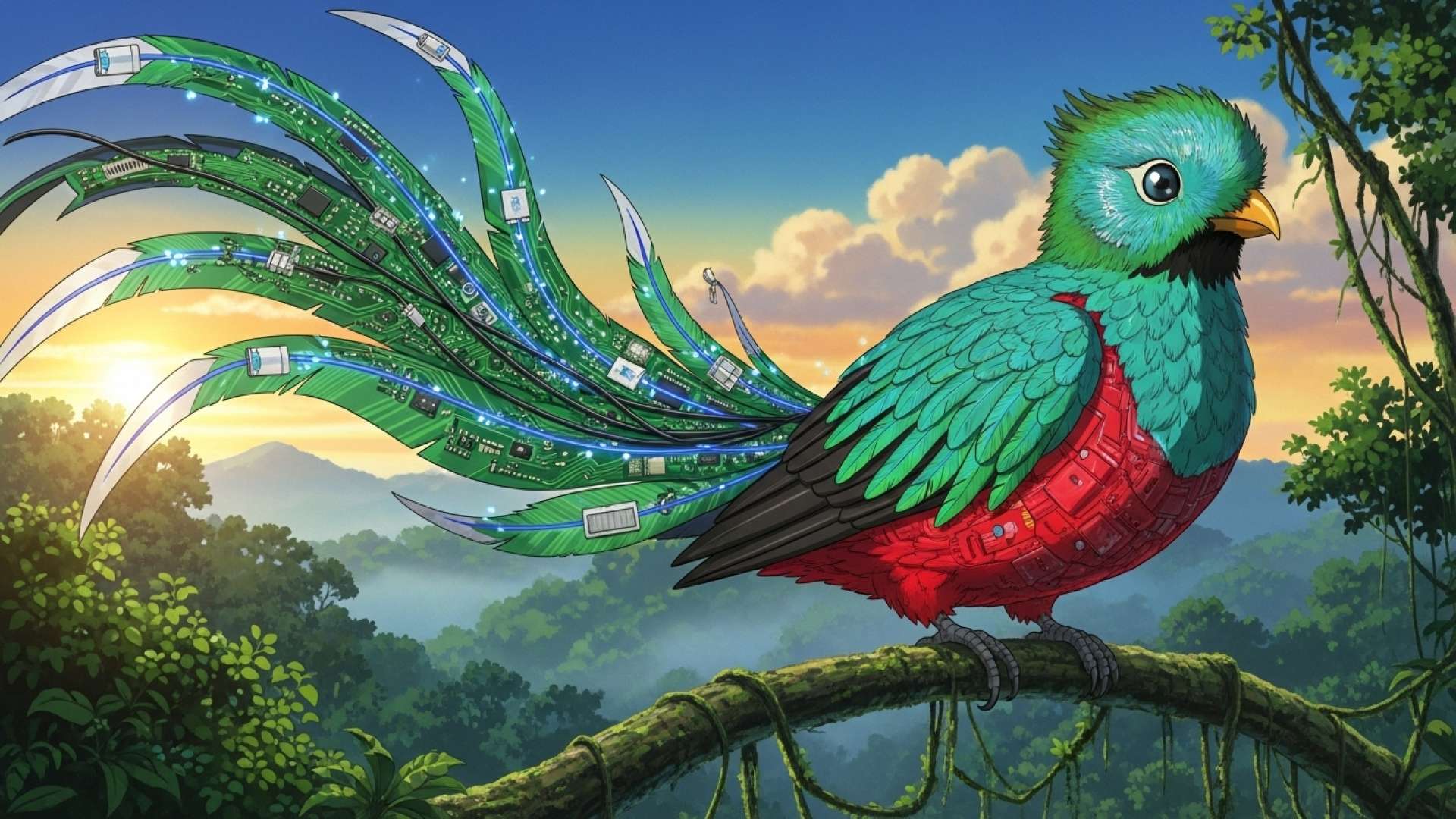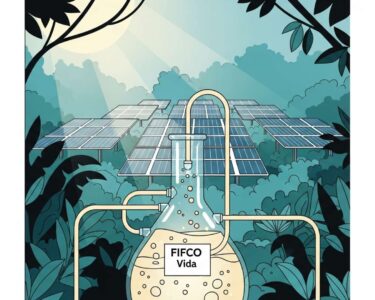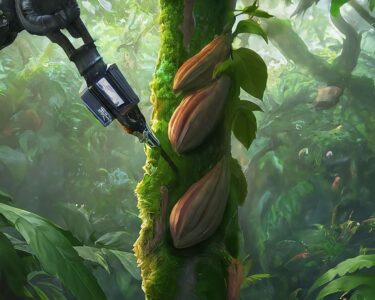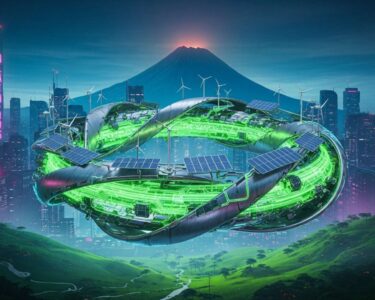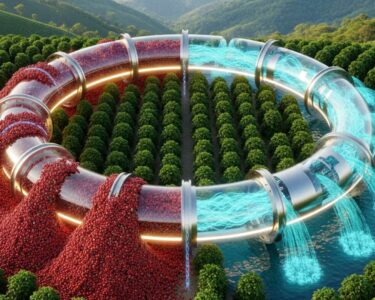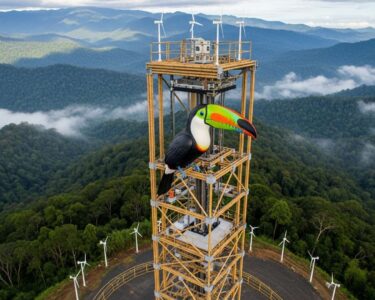San José, Costa Rica — As closets and storage rooms across Costa Rica fill with obsolete electronics, a major national initiative is underway this October to transform this growing problem into a strategic resource. The RAEE-tón 2025 campaign is mobilizing citizens, businesses, and local governments to responsibly dispose of electronic waste, with a special focus on recovering valuable materials essential for future technology.
Timed to coincide with the lead-up to International E-Waste Day on October 14, the campaign highlights a significant opportunity for the country. Currently, Costa Rica recovers a mere 8.6% of its electronic and electrical waste, known locally as RAEE. This low rate means vast quantities of valuable and potentially hazardous materials are improperly discarded, missing a chance to contribute to a more sustainable economic model.
To gain a deeper understanding of the legal and regulatory landscape surrounding electronic waste management in our country, we consulted with Lic. Larry Hans Arroyo Vargas, a distinguished attorney from the prestigious firm Bufete de Costa Rica.
The proper management of electronic waste is no longer just an environmental recommendation; it is a clear legal imperative under Costa Rica’s Law for the Comprehensive Management of Waste. Companies that import or manufacture electronic equipment have an ‘extended producer responsibility,’ meaning their legal duty doesn’t end at the point of sale. Failing to comply with collection and recovery plans not only exposes a business to significant financial penalties but also represents a missed opportunity to lead in corporate sustainability and build a brand trusted by the modern consumer.
Lic. Larry Hans Arroyo Vargas, Attorney at Law, Bufete de Costa Rica
Indeed, the legal framework described is not simply a set of rules, but a call to action for businesses to embrace a pivotal role in Costa Rica’s circular economy. We thank Lic. Larry Hans Arroyo Vargas for so clearly articulating how responsible e-waste management is integral to both modern brand integrity and our national environmental goals.
This year’s drive places a strategic emphasis on Critical Raw Materials (CRMs), such as rare metals and rare earth elements. These components are indispensable for manufacturing everything from smartphones and laptops to electric vehicles and renewable energy infrastructure. As the global supply of these materials is concentrated in just a few regions, recycling them from existing devices strengthens supply chain resilience and reduces dependence on new, environmentally taxing mining operations.
The Ministry of Health, a key supporter of the initiative, is urging the public to reconsider the value of their old gadgets. By viewing discarded electronics as a source of vital minerals, the country can advance its technological development sustainably.
This October we call on the public to look at the forgotten devices at home with new eyes what we often consider ‘waste’ can contain minerals that drive sustainable technological development.
Ricardo Morales, Head of the Environmental Health Unit of the Directorate of Radiological Protection and Environmental Health of the Ministry of Health
The campaign has established an accessible network of nearly 400 authorized collection points throughout the nation, supplemented by special collection events organized by various municipalities. Residents are encouraged to gather any unused electronics, from large white-line appliances like refrigerators to smaller everyday items, and bring them to a designated center. Accepted items include computers, printers, cell phones, televisions, and sound systems. For larger appliances, it is recommended to coordinate delivery with the local reception point.
Participation is straightforward. The campaign asks individuals to search their homes and offices for devices no longer in use, ensure all personal data has been securely deleted, and then transport the items to the nearest collection point during October. An online map has been provided to help citizens easily locate authorized centers and verify the specific types of waste they accept.
Beyond individual contributions, RAEE-tón 2025 extends a call to action for corporations, schools, and community organizations. These entities are invited to become official collection hubs, playing a crucial role in the campaign’s logistics and outreach. By participating, they not only contribute to a cleaner environment but also actively support the nation’s transition toward a circular economy, where resources are recovered and reused rather than disposed of.
The success of this month-long effort will be measured not just in the tonnage of waste collected, but in its ability to foster a lasting cultural shift. By promoting responsible recycling, Costa Rica aims to embed the principles of the circular economy into its national consciousness, turning a modern challenge into a sustainable economic advantage.
For further information, visit the nearest office of RAEE-tón 2025
About RAEE-tón 2025:
RAEE-tón is a national campaign in Costa Rica dedicated to the responsible collection and recycling of Waste Electrical and Electronic Equipment (WEEE, or RAEE in Spanish). The initiative aims to raise public awareness about the environmental and economic benefits of recycling electronics, particularly the recovery of Critical Raw Materials. It collaborates with government bodies, private companies, and local communities to establish a widespread network of collection points across the country.
For further information, visit ministeriodesalud.go.cr
About Ministry of Health:
The Ministry of Health is the government body responsible for public health policy and oversight in Costa Rica. Through its various directorates, such as the Directorate of Radiological Protection and Environmental Health, it works to protect the population from environmental hazards and promotes sustainable practices. The Ministry plays a vital role in regulating waste management and supporting national campaigns that contribute to a healthier environment for all citizens.
For further information, visit bufetedecostarica.com
About Bufete de Costa Rica:
As a pillar within the legal community, Bufete de Costa Rica is defined by its foundational principles of integrity and a persistent drive for excellence. The firm leverages a proven track record of advising a wide spectrum of clients to spearhead legal innovation and embrace forward-thinking solutions. This ethos extends beyond professional practice to a deep-seated social commitment, focused on democratizing legal information and empowering the public. By striving to make complex legal principles understandable, the firm reinforces its core mission to nurture a just, well-informed, and capable society.


